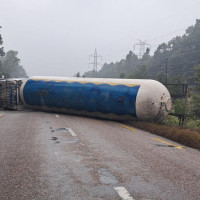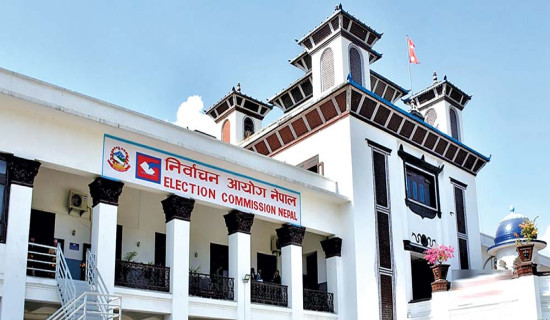- Tuesday, 30 December 2025
Power Bills Clearance
In welcome news, industries that had their electricity supply disconnected for failing to pay tariffs under the dedicated and trunk electricity line have taken the first step towards clearing their outstanding dues. The payments are linked to a long-standing dispute over premium charges during years of load-shedding. They have paid the first instalment out of the agreed-upon total of 28.
The news is encouraging because it comes after one unsuccessful attempt after another over the years on the part of the government to recover the long-pending electricity tariff from the industries. During his tenure as the managing director of the Nepal Electricity Authority (NEA), Kul Man Ghising had repeatedly made an effort to that end. He had to resort to cutting off the power supply time and again. In response, some small industries came forward with a portion of the dues, while large ones dragged their feet. The political patronage enjoyed by the latter is alleged to have been the cause of the non-payment.
The Authority had disconnected the lines of 25 industries for non-payment in line with its tariff collection regulation on October 24. Following this, over a dozen companies have started settling their outstanding payments in instalments within a few days. Among them are Gohari Cement Ltd., Jagadamba Steel, Sonapur Minerals and Oil Limited, Shivam Cement, Triveni Synthetic Yarn Industries Pvt. Ltd., Reliance Spinning Mills, Panchakanya Steel Industries, Siddhartha Pet Plant, Shyam Plastic, Hulas Steel, Ashok Steel, Hama Iron and Steel, Samrat Cement, Rolpa Cement, and Nawa Nepal Plastic Industries, among others.
The cordial understanding reached between the representatives of the business community and the government paved the way for the resolution of the long-standing tariff disputes. This has sent the message that most, if not all, disputes can be resolved through dialogue, no matter how intractable they may seem at first. The lesson learned from this achievement can be applied to other nagging conflicts as well. The government has been urging the industries not to delay in the payment, saying that it was under huge financial pressure to fund the critical projects, several of which include the development of electricity infrastructures that are likely to immensely benefit them, besides other consumers.
Paying off electricity dues is crucial both for the consumer and the power provider. The culture of not paying dues might set a bad example, which might encourage others to follow suit and lead the government to lose out on its crucial revenue. Equally important is to be aware to not let things go wrong in the future. What if the industries paid the first instalment but hesitate to pay successive ones? The government has an obligation to create an environment for them to clear their full dues as per the agreed-upon provisions. At the same time, those owing the dues need to collaborate responsibly with the government so that it becomes easier for them to pay the arrears.
Now, the payment deal has gathered momentum, and it must be unstoppable until the goal is met, which is the full clearance of the dues. It must not lose steam no matter who comes in the government or because of one or another pretext. It is imperative to ensure that no industry goes off track after clearing the first few instalments.







-square-thumb.jpg)








